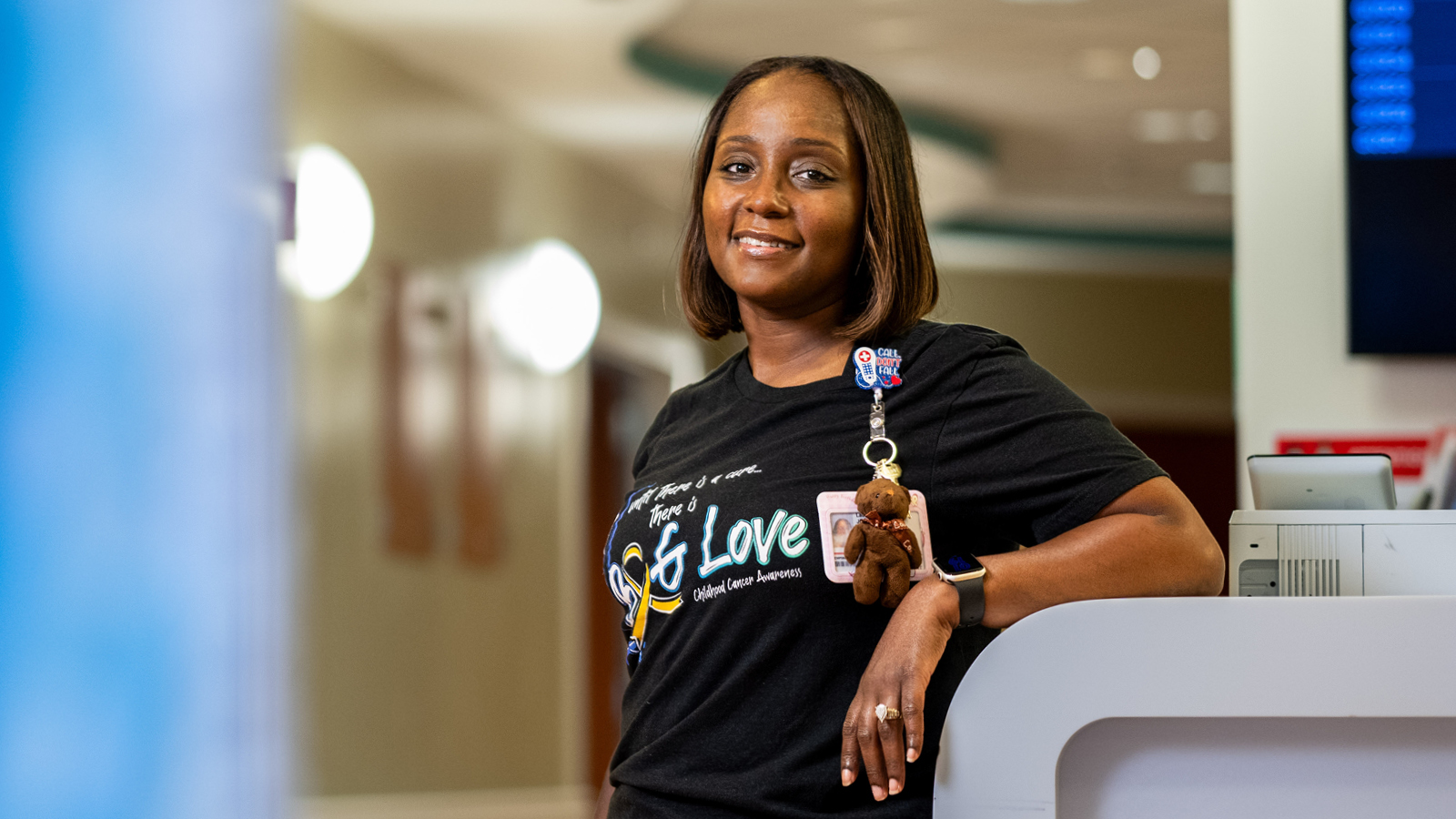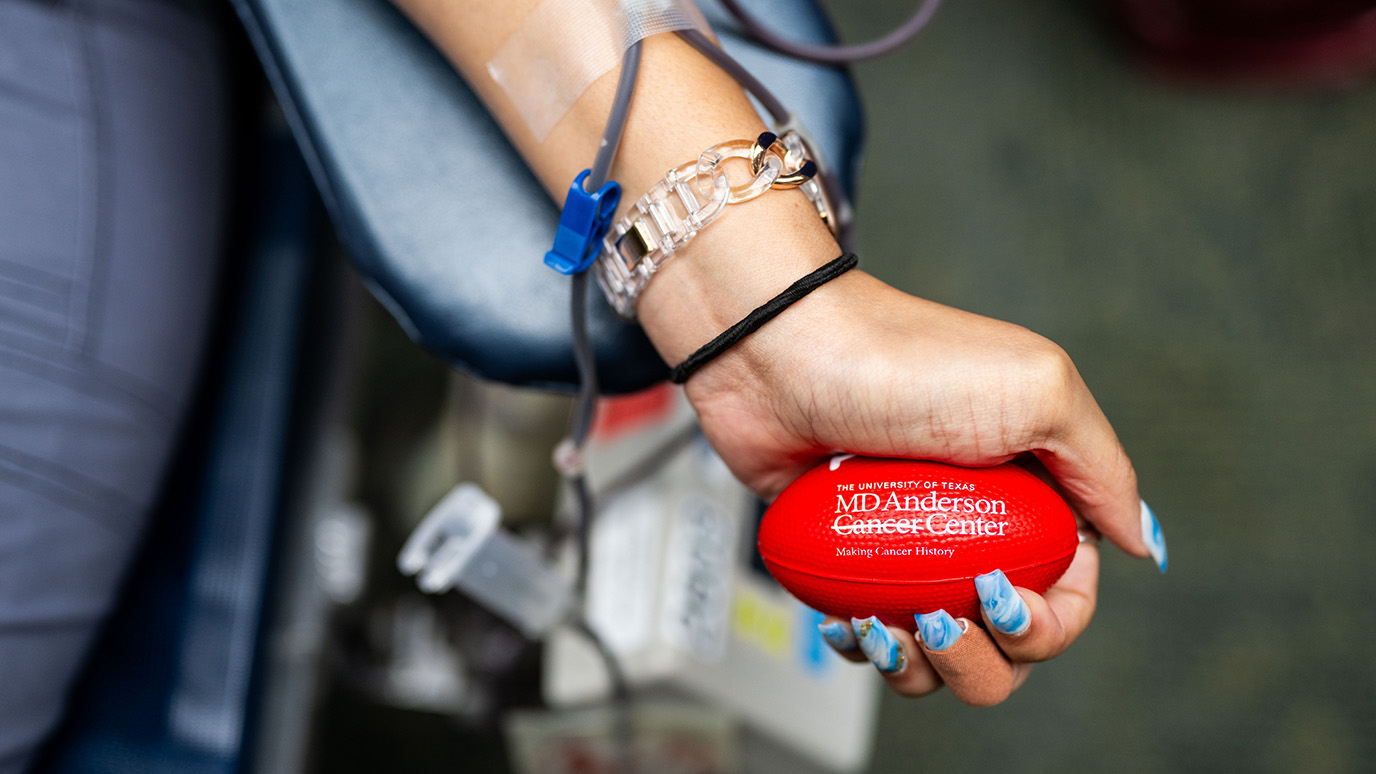- Diseases
- Acoustic Neuroma (14)
- Adrenal Gland Tumor (24)
- Anal Cancer (66)
- Anemia (2)
- Appendix Cancer (16)
- Bile Duct Cancer (28)
- Bladder Cancer (68)
- Brain Metastases (28)
- Brain Tumor (228)
- Breast Cancer (714)
- Breast Implant-Associated Anaplastic Large Cell Lymphoma (2)
- Cancer of Unknown Primary (4)
- Carcinoid Tumor (8)
- Cervical Cancer (154)
- Colon Cancer (164)
- Colorectal Cancer (110)
- Endocrine Tumor (4)
- Esophageal Cancer (42)
- Eye Cancer (36)
- Fallopian Tube Cancer (6)
- Germ Cell Tumor (4)
- Gestational Trophoblastic Disease (2)
- Head and Neck Cancer (6)
- Kidney Cancer (124)
- Leukemia (344)
- Liver Cancer (50)
- Lung Cancer (288)
- Lymphoma (284)
- Mesothelioma (14)
- Metastasis (30)
- Multiple Myeloma (98)
- Myelodysplastic Syndrome (60)
- Myeloproliferative Neoplasm (4)
- Neuroendocrine Tumors (16)
- Oral Cancer (100)
- Ovarian Cancer (170)
- Pancreatic Cancer (166)
- Parathyroid Disease (2)
- Penile Cancer (14)
- Pituitary Tumor (6)
- Prostate Cancer (144)
- Rectal Cancer (58)
- Renal Medullary Carcinoma (6)
- Salivary Gland Cancer (14)
- Sarcoma (236)
- Skin Cancer (294)
- Skull Base Tumors (56)
- Spinal Tumor (12)
- Stomach Cancer (60)
- Testicular Cancer (28)
- Throat Cancer (90)
- Thymoma (6)
- Thyroid Cancer (98)
- Tonsil Cancer (30)
- Uterine Cancer (78)
- Vaginal Cancer (14)
- Vulvar Cancer (18)
- Cancer Topic
- Adolescent and Young Adult Cancer Issues (20)
- Advance Care Planning (10)
- Biostatistics (2)
- Blood Donation (18)
- Bone Health (8)
- COVID-19 (362)
- Cancer Recurrence (120)
- Childhood Cancer Issues (120)
- Clinical Trials (622)
- Complementary Integrative Medicine (24)
- Cytogenetics (2)
- DNA Methylation (4)
- Diagnosis (226)
- Epigenetics (6)
- Fertility (62)
- Follow-up Guidelines (2)
- Health Disparities (14)
- Hereditary Cancer Syndromes (122)
- Immunology (18)
- Li-Fraumeni Syndrome (8)
- Mental Health (118)
- Molecular Diagnostics (8)
- Pain Management (64)
- Palliative Care (8)
- Pathology (10)
- Physical Therapy (18)
- Pregnancy (18)
- Prevention (886)
- Research (388)
- Second Opinion (74)
- Sexuality (16)
- Side Effects (602)
- Sleep Disorders (10)
- Stem Cell Transplantation Cellular Therapy (216)
- Support (404)
- Survivorship (322)
- Symptoms (186)
- Treatment (1770)
Are you a victim of domestic violence?
4 minute read | Published October 15, 2024
Medically Reviewed | Last reviewed by Tatiana Fincham on October 15, 2024
Intimate Partner Violence (IPV) — more commonly known as domestic violence — is defined as the emotional, psychological, sexual, or physical abuse inflicted by someone on an intimate partner.
But what does that look like in the context of cancer treatment? How would you know if someone was behaving abusively towards you? And, can anyone be a victim or a perpetrator?
Read on for the answers to these and other questions.
Watch for these signs of cancer-related domestic violence
Abusive behaviors are designed to maintain power and control in a relationship. But sometimes, they’re hard to identify at the outset. These behaviors tend to escalate over time, though, and intensify during significant life events.
A cancer diagnosis is a particularly sensitive time, as spouses, partners and significant others often become a patient’s primary caregiver. This can be stressful for everyone.
Movies often paint a stereotypical picture of violence: a female is always the victim, a male is always the perpetrator, and everyone can agree that he’s really scary.
“In real life, though, things are rarely that clear cut,” says senior social work counselor Tatiana Fincham. “For example, we’ve seen cases where the person acting out is a female patient, and the target is her male caregiver. So, we don’t make assumptions. We just watch how people interact and start paying closer attention when something seems off.”
Here are some red flags to look for, regardless of gender.
Caregivers who:
- Respond to your cancer diagnosis in a self-centered, minimizing or dismissive way (e.g., they focus on how your diagnosis is affecting them and look for sympathy from others)
- Refuse to acknowledge your fatigue and/or increased need for rest; your caregiver may deliberately awaken you from naps, prevent resting and/or assume that you can resume normal household chores before fully recovering from treatment
- Make negative comments about changes in your appearance during treatment and/or after surgery
- Force you to consent to treatment you don’t want or deny you treatment that you actually need
- Deprive you of medications or communication devices
- Use your cancer diagnosis as an excuse to isolate you
- Exclude you from financial decisions that directly affect you
Patients who:
- Belittle your efforts to care for them or try to make you feel inadequate
- Imply that you’re weak or stupid for needing outside assistance
- Complain when you don’t respond quickly enough to their requests
- Criticize the way you make their bed, cook their food, etc.
- Question your thinking, organizational skills or ability to run a household
- Try to make you feel guilty or selfish for needing a break or wanting some time alone
- Threaten to call Adult Protective Services and report you for neglect, even when you’ve done nothing wrong
If any of these examples sound familiar, you are not alone — and you are not to blame.
“There is never an excuse for abuse,” Fincham says. “No one deserves to be in a relationship where their emotional or physical safety is in danger.”
Safety planning looks different for everyone
So, what should you do if you find yourself in an abusive situation? The first step is to think about what you want, then figure out what might need to happen in order to get there. This is called safety planning.
The concept of “safety” will look different for everyone. But it could include plans on how to stay safe:
- while still living with an abuser
- while planning to leave them
- after you’ve left an abusive situation
“Sometimes, leaving is not the best option,” notes Fincham. “So, maybe the way we help you right now is by coming up with strategies to keep you safer while you’re still living together.”
Here are some examples of what that might look like:
- Deciding where to keep a “bug-out” bag, so you can leave quickly if you need to
- Making plans to stay with a friend or a relative on game days, since your partner only gets abusive when his favorite sports team loses
- Leaving certain windows or blinds open as a signal to sympathetic neighbors that all is well, but to call 911 if they see them go down
“It’s all about slowing down, exploring possibilities, and taking the time to understand how an abuser thinks,” says Fincham. “We trust each person to know what’s best for them.”
If you’re an MD Anderson patient or caregiver and you have additional questions, need emotional support or want assistance with creating a safety plan, reach out to your social work counselor through MyChart or call Social Work at 713-792-6195.
You can also get help or learn more by calling the National Domestic Violence Hotline at 1-800-799-7233 or 1-800-787-3224 (TTY), by texting “START” to 88788, or by chatting with advocates online.
Request an appointment at MD Anderson online or call 1-844-208-7233.
Related Cancerwise Stories

There is never an excuse for abuse.
Tatiana Fincham
Senior Social Work Counselor





